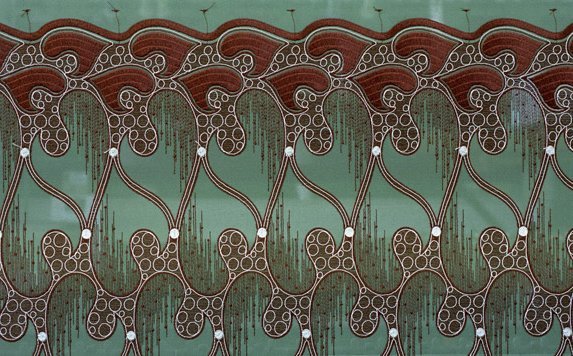In a world where absurdity reigns, Kafka’s The Trial manifests the solitary struggle of Joseph K. against a pervasive justice system that inflicts psychological torture onto any defendant. As the novel progresses, the initial scepticism, arguably a symbol for individuality and self- determination displayed by K. at his inexplicable arrest, is worn thin as he meets corrupt and brainwashed characters that are at the constant mercy of the court. Furthermore, we see Joseph K. sink slowly but surely into an existential crisis as he comes to the realisation that all the individuals involved in the trial can offer him no plausible solution to his predicament, and is therefore left facing a phantom charge about which he can get no information, and that may quite possibly cost him his life.
The feeling of sinking dread and mistrust that Kafka imbues in his novel is reflected in the writer’s own personal and contextual surroundings. Although The Trial was published in 1925, a year after the writer’s death, Kafka wrote it in 1914 a year that was replete with political tension and instability. Thus, the aforementioned sentiment of alienation and increased anxiety already ran rampant in the hearts of many individuals, for it was a shared premonition that the upcoming war would leave a trial of immense devastation in its wake. The aftermath of the war generated a schism between the previously revered monarchical and governmental institutions, and the young generation that now lived in a state of post war disillusionment and the feeling that life itself was void of rational meaning.
Kafka himself struggled with the feeling of powerlessness in the face of an arbitrary authority, not only on a political level, but a personal one as well. Kafka’s relationship with his belittling and some might say tyrannical father inspired the writer in creating the cruel and unforgiving power of the court of law as is depicted in The Trial. Moreover, to enhance Joseph K.’s feeling of persecution, the characters in the novel that are involved in the court’s proceedings, such as The Examining Magistrate, The Cane Wielder, The Painter, The Court Usher, The Lawyer, etc. all remain nameless. The constant preservation of the court’s anonymity effectively propagates the image of an all-powerful totalitarian entity against the helpless individual. Arguably, one of the most powerful phrases of the novel “Like a dog” which lies in the final paragraph, highlights the complete evisceration of any shred of individuality and self-respect by the tyrannical legal institution.
Whether The Trial is read as an existential novel, or a warning against the dangerous influence of bureaucracy and totalitarianism, the unpredictability and absurdity of Kafka’s genius resonates with generations of readers making me fully appreciate how timeless and arguably canonical the text is. On a political level, The Trial also reminds us all that the immense power of words can act as an increasingly potent resistance to even the most authoritarian governmental institutions.
Sofía Anfoka Díaz
This review was written for the ACF London's EXPLORE OUR LIBRARY initiative.

